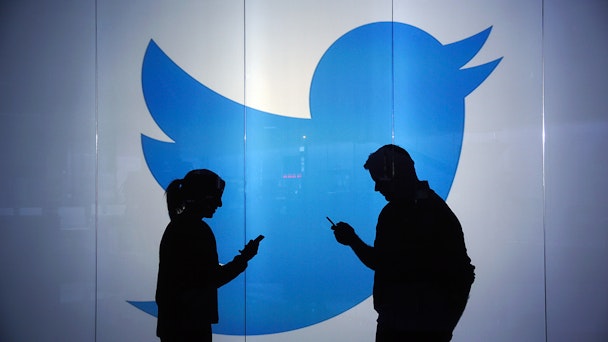How brands can make themselves heard in social media's echo chamber
The Guardian’s Kath Viner recently wrote of how social media is disrupting the truth and swallowing the news, threatening the funding of public-interest reporting and ushering in a new era where everyone has their own facts.

/ #SaveTwitter
With the overflow of information we receive through our smartphones every minute of every day, and the increasing lack of trust of news media, it’s little surprise that radical change is quietly raging on and threatening many of the news institutions, now being disintermediated through search and social platforms.
Compound that with changes in the search algorithm, engineered to serve what you 'like' rather than what you need and you have a recipe for a revolution in how news is consumed and shared.
Internet and political activist Eli Pariser, in his book 'The Filter Bubble: What the Internet is Hiding From You', addressed how the internet and technology platforms are evolving to keep us in a self-perpetuating personal bubble of influence: “The more I like something, the more I see what I like,” so to speak.
The recommendation engines of Amazon, Netflix and Facebook understand this and they serve us based on our ongoing personal online behaviour. The power of the continuous feedback loop allows them to serve what we previously responded to. It perpetuates our selection preferences with an incredibly accurate effect.
But at what point do these choices turn into biases? At what point do we only see what we want to see, rather than what we should see? And at what point does our world become an exclusive utopia, blind to what’s happening to the rest of society because we only see what our narrow circles see?
If there’s any doubt of how far-reaching the consequences of this social phenomenon are, just take Brexit as a now well-documented case in point. The power of the crowd followed emotion and gut. Not the facts or the informed arguments. The echo chamber beat the establishment.
With populism rising and mass phenomena the new norm, brands need to find better ways of understanding and engaging with audience groups through social channels. The old models are broken.
Today, social is media. Once described as “earned media”, it now costs to engage audiences through social. $1.5bn to be precise, if you look at Facebook’s first quarter earnings this year.
And whilst social media is giving brands a more equal footing in a hugely fragmented media landscape, the pressure for relevance and resonance is higher than ever. Deep listening and pattern-matching audiences emotionally is critical to gaining traction.
Today's millennial audiences, inundated by messages across the vast spectrum of modern-day media, turn increasingly to ad blockers and other avoidance tactics. The consumer is outsmarting 'interruptive' brands because marketers are disengaged from the conversation. They’re still pushing when they should be pulling.
Harnessing language is key. The role language plays across search and social platforms is how a brand develops a position of trust. In this arena, verbal identity supersedes visual identity.
Words have the power to create and affect attitudes, behaviour, and perception. The right words can transform brand engagement and revive connectivity. By understanding the psychology of audiences, brands can enter the conversation through social platforms as part of a rapid-response marketing strategy.
In today’s socially driven media environment, brands have the power to shape the conversation at a time when conversations are changing the world.
Alex van Gestel is chief executive of Verbalisation
